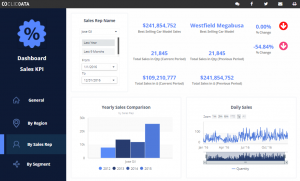 Approximately 34 million Americans work from home, at least a couple times a month. And 6.5 million Americans work from home regularly.
Approximately 34 million Americans work from home, at least a couple times a month. And 6.5 million Americans work from home regularly.
And the remote job trend is not expected to slow down – neither in the US or abroad.
During a nine-month research study, a Chinese travel agency saved $ 1,900 per remote employee. In their study, they found study participants:
- Worked longer hours (sans commute time)
- Took shorter breaks
- Were met with fewer distractions in a quieter environment
- Rarely requested sick time off
They also found that higher job satisfaction, increased productivity, and more favorable retention rates were three benefits experienced by this company and some of their remote call center employees.
Hiring remote workers can cut costs and expand your talent pool. But how do you know when you’ve found the best remote employees?
Be on the lookout for the following qualities in your remote employee candidates.
1. High Emotional Intelligence
Why would a remote worker need to be emotionally attuned? It’s because emotions have been associated with intelligence and vice versa.
Remote employees are part of a larger network of individuals who contribute to your company’s mission. This is why emotional intelligence (EI) is important, even when conducting work outside of the office.
An employee’s emotional intelligence speaks to their ability to:
- Collaborate with co-workers
- Engage in clear and respectful online communication (digital emotional intelligence)
- Avoid confrontations
- Establish and maintain relationships
These are all pertinent factors whether working on-site or off. An open-ended question such as, “Tell me about your home life” or “Share with me what happened the last time you went out for a cup of coffee” can offer some insight into your candidate’s level of EI.
2. Digital Acuity
On a day-to-day basis, keeping lines of communication open with remote staff is crucial. Whether you communicate by email, Skype, or another technical avenue, you’ll want a worker who can adapt to the unpredictability of technology and not crumble by a sudden technical glitch..
Incorporating one or many of these tools into your candidates’ interview process will help you gauge how they traverse technological terrain.
3. Grit and Time Management Skills
Virtual employees must be self-motivating. Otherwise, they’ll be mostly unproductive. But a person’s grit and time management skills are moderated by their EI.
Grit has been described as a person’s “passion and perseverance for long-term goals.” It’s their level of stick-to-itiveness.
If given a project, will this person complete it or leave it hanging in the balance? Is this person resourceful? Stalls in any long-term project are inevitable. How will they go about solving these problems with minimal directives?
When interviewing candidates for remote positions, you can ask broad questions related to grit and time management. Questions like:
- How do you approach project assignments?
- In the past, how have you reacted when it becomes clear a project has taken a wrong turn?
- What’s a typical workday look like for you?
By asking open-ended instead of leading questions, candidates can respond based on their personal experience instead of feeding you the answers they think you want to hear.
4. At Home Experience
Employees don’t always know what to expect when working from home. For some, it becomes more than they bargained for – the isolation, a humming refrigerator beckoning them to have a snack, an inability to be self-directed, or pure dislike for remote work environments.
Working from home or other remote locations simply doesn’t work out for everyone.
Thus, finding an experienced remote worker ensures they’ve addressed work-life kinks. And it’s an indication their desire to work for you remotely won’t be a temporary spell – causing you to soon look for a replacement.
5. Skills Development
Since your remote workers will be part of a larger team, you’ll want to invest in their skills development as you would with your employees on location.
So you should evaluate more than just the qualities above and a candidates’ basic skills needed to get the job done. You’ll also want to assess for their openness to continuing education. Are they willing to grow with your company?
The level of success achieved by finding the best remote employees is determined not only by the talent pool but also by you, the employer as well.
How will you systematize the onboarding process for remote employees?
Business & Finance Articles on Business 2 Community(41)






